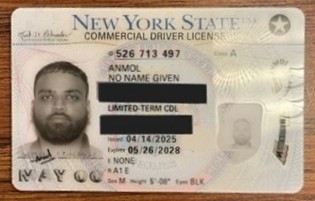State Citizen Militias
-STATUTE-
The militia of the United States consists of all able-bodied males at least 17 years of age and, except as provided in section 313 of title 32, under 45 years of age who are, or who have made a declaration of intention to become, citizens of the United States and of female citizens of the United States who are members of the National Guard. b) The classes of the militia are - (1) the organized militia, which consists of the National Guard and the Naval Militia; and (2) the unorganized militia, which consists of the members of the militia who are not members of the National Guard or the Naval Militia.
It is clear from the above statute that there is a clear difference between an organized militia called the National Guard, a Naval militia and an unorganized militia that consists of people who are not members of either one. Not only does the Constitution specifically allow the formation of a Federal Army, it also recognizes the inherent right of the people to form militias. Further, it recognizes that the citizen and his personal armaments are the foundation of the militia. The arming of the militia is not left to the state but to the citizen. However, should the state choose to arm its citizen militia, it is free to do so (bearing in mind the Constitution is not a document limiting the citizen, but rather limiting the power of government). But should the state fail to arm its citizen militia, the right of the people to keep and bear arms becomes the source of the guarantee that the state will not be found defenseless in the presence of a threat to its security.
It makes no sense whatsoever to look to the Constitution of the United States or that of any state for permission to form a citizen militia since logically, the power to permit is also the power to deny. If brought to its logical conclusion in this case, government may deny the citizen the right to form a militia. If this were to happen, the state would assert itself as the principle of the contract making the people the agents. Liberty then would depend on the state's grant of liberty. Such a concept is foreign to American thought.
Since The Constitution is the limiting document upon the government, the government cannot become greater than the granting power. That is, the servant cannot become greater than its master. Therefore, should the chief executive or another branch of government or all branches together act to suspend The Constitution under a rule of martial law, all power granted to government would be cancelled and differed back to the granting power. That is the people.
Martial law shall NOT be possible in this country as long as the people recognize the Bill of Rights as inalienable. It is clear, from the Federalist Papers and the debates about the adoption of the Constitution, what the Founders and Framers recognized as the Militia. They discussed the meaning and purpose of the Militia frequently. If we read the whole of the Federalist Papers numbers 24 through 34, we'll find a complete argument for the Militia as a "citizens army" that is to consist of "the whole of the people," designed to allay the public fears of a despotic central government.
Congress has acknowledged who the Militia in the Second Amendment refers to. On page 11 of the Report of the Subcommittee on the Constitution of the Committee on the Judiciary, United States Senate, Ninety-Seventh Congress, Second Session, February 1982, it states:
"The militia refers to a concept of a universally armed people, not to any specifically organized unit. When the framers referred to the equivalent of our National Guard, they uniformly used the term "select militia' and distinguished this from "militia.'
Debates over the Constitution constantly referred to organized militia units as a threat to freedom comparable to that of a standing army and Stressed that such organized units did not constitute, And indeed were philosophically opposed to, the concept of a militia. That the National Guard is not the militia referred to in the Second Amendment is even clearer today. Congress has organized the National Guard under its power to raise and support armies and not its power to provide for organizing, arming, and disciplining the militia. (House Resolution Report No. 141, Seventy-Third Congress, First Session, February 5th, 1933.) This Congress chose to do, in the interest of organizing reserve military units which were not limited in deployment by the strictures of our power over the constitutional militia, which can be called forth only "to execute the Laws of the Union, suppress Insurrections and repel Invasions.' The modern National Guard was specifically intended to avoid status as the constitutional militia, a distinction recognized by 10United StatesCode, Section 311, Subsection (a)."
Hopefully this article will shed some historical truth concerning state militias. State Senator Randy Brogdon was taken to task by the news media, Congresswoman Mary Fallin and Republican State Party Chairman Gary Jones and other party leaders on both sides of the political aisle when Senator Brogdon correctly explained that the formation of and participation in, an Oklahoma militia is legally based on both federal and state law. (The Oklahoman news story April 14, 2010). Fallin and Jones are establishment Republicans who shot their mouths off on the militia issue.
Robert Godwin is a graduate of Bob Jones University. He has taught Economics, American history and American government in Christian schools. He is also a retired Navy veteran and is very active in conservative causes in Oklahoma. You can e-mail him at emsgodwin@yahoo.com










Latest Commentary
Thursday 30th of October 2025
Thursday 30th of October 2025
Thursday 30th of October 2025
Thursday 30th of October 2025
Thursday 30th of October 2025
Thursday 30th of October 2025
Thursday 30th of October 2025
Thursday 30th of October 2025
Thursday 30th of October 2025